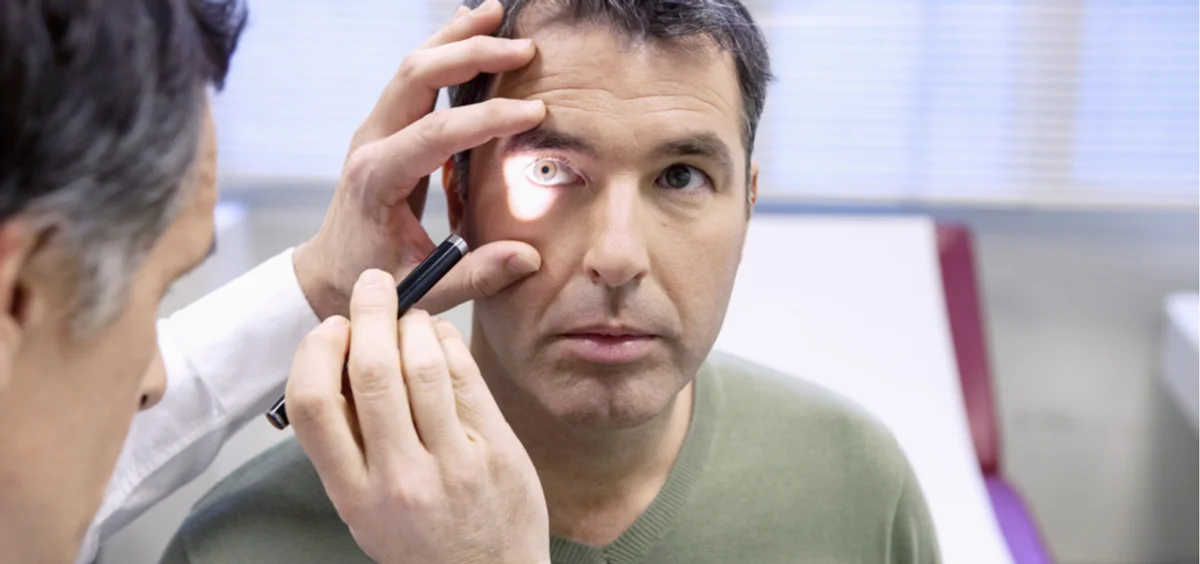- Home
- Blog
- Special Days
Prevention of Blindness Week: Can Glaucoma Make You Blind?
Special Days
Prevention of Blindness Week: Can Glaucoma Make You Blind?
By Apollo 24|7, Published on- 29 March 2022, Updated on -18 December 2022
Share this article
0
2 likes

From the time you wake up in the morning till you sleep at night, your eyes are always at work. The eyes receive information, such as shapes, colours, or movements, from the surroundings and send it to the brain to process an image. However, serious eye conditions like glaucoma interrupt this transmission of information by damaging the optic nerve, resulting in vision loss. Data released by the World Health Organisation shows that nearly 45 lakh people all over the world are blind because of glaucoma. Out of which, India accounts for more than 12 lakh cases of blindness due to glaucoma.
Every year the Government of India observes “Prevention of Blindness Week” from the 1st to the 7th of April to raise awareness against the causes of blindness and the ways to prevent them. This article helps raise awareness about glaucoma to prevent total loss of vision.
What Is Glaucoma?
Glaucoma refers to a group of eye disorders that are associated with damage to the optic nerve, which is responsible for transmitting visual information from the eyes to the brain. The condition is mostly the result of abnormally high pressure inside the eyes. Over time, the increased eye pressure can damage the optic nerve resulting in gradual loss of vision. If left untreated, the condition can cause blindness.
Causes of Glaucoma
Scientists are still trying to determine the exact cause of glaucoma. However, increased intraocular pressure (pressure inside the eye) is believed to be the reason for the optic nerve damage.
The human eye contains the ciliary body, which supports the lens and releases a clear fluid called aqueous humor to keep the eyes inflated. Aqueous humor fills the front part of the eyes and drains out through a mesh-like tissue located between the iris (coloured part in the centre of the eye) and cornea (outermost layer of the eye). However, when the tissue fails to function properly, the fluid starts building up inside the eye, resulting in increased intraocular eye pressure. A prolonged increase in intraocular eye pressure can damage the optic nerve, ultimately leading to vision loss.
Glaucoma Symptoms
Depending on the type of glaucoma, a person may experience the following symptoms:
1. Open-angle Glaucoma
Most people with open-angle glaucoma do not experience any noticeable symptoms during the initial stages. The condition doesn’t become evident until the damage is quite severe. However, as the disease progresses, the person may experience:
- Blind spots in peripheral (side) vision
- Tunnel vision
2. Acute angle-closure glaucoma
Acute angle glaucoma is considered a medical emergency as it doesn’t exhibit any symptoms before the attack. The symptoms may include:
- Intense pain in the eyes
- Eye redness
- Dilated pupils
- Severe headache
- Nausea
- Vomiting
- Halos or coloured rings around lights
Who Is at Risk of Glaucoma?
Some of the major risk factors for glaucoma are:
- Being over 60 years of age
- Diabetes
- Heart disease
- Sickle cell anaemia
- High blood pressure
- Family history of glaucoma
- Chronic eye inflammation
- Thin cornea
- Injury to the eyes
- Prolonged use of steroids
Recommended reading: Keeping an eye on diabetic retinopathy
How Is Glaucoma Detected?
Glaucoma can only be detected by an ophthalmologist through a detailed eye examination. Tests that may help determine the condition include:
- Tonometry - to measure eye pressure
- Pachymetry - to measure the thickness of the cornea
- Visual field test - to look for side vision loss
- Gonioscopy - to inspect the drainage
- Dilated eye exam and optical coherence tomography (OCT) - to check if the optic nerve is damaged or not
Can Glaucoma Be Cured?
Currently, there is no full cure for glaucoma. The damage caused by the condition cannot be reversed. However, prompt treatment can help delay or prevent further loss of vision. The treatment of glaucoma focuses on lowering the intraocular pressure (pressure inside the eyes). Depending on the underlying factors, the treatment options may include:
- Eye drops - These topical medications lower eye pressure by improving the drainage of aqueous humor from the eyes or by decreasing its production.
- Oral medication - Oral medications such as beta-blocker or a carbonic anhydrase inhibitor may be prescribed. These medications improve the drainage of aqueous humor and inhibit its production.
- Laser treatment - In this procedure, the doctor uses a small laser beam to open clogged channels in the trabecular meshwork. This helps improve fluid drainage and lower eye pressure.
- Surgery - This is an invasive procedure in which a surgeon creates a new channel to drain out the aqueous humor and lower the eye pressure. It might involve implanting a tube to help drain out the fluid.
How to Prevent Glaucoma?
Glaucoma cannot be prevented completely. However, self-care measures that can help slow down the progression of the condition and prevent total loss of vision include:
- Frequent eye care exams: Regular preventative eye care exams can help with the timely detection of glaucoma, thereby preventing further loss of vision.
- Exercise: Regular and moderate exercise can help reduce the risk of glaucoma by lowering eye pressure.
- Protect your eyes. Severe eye injury can increase the risk of glaucoma. Use protective eyewear when playing sports or working on projects that may affect your eyes.
- Eat a balanced diet: A diet rich in vitamin A and omega-3 fats can help in improving eye health.
Takeaway
Vision loss can be devastating. By creating awareness against diseases like Glaucoma, we can help reduce the cases of blindness and ensure healthy vision in people. The “Prevention of blindness week” campaign also aims at educating people about eye donation to help bring light to the lives of blind people.
Worried about your eye health?
Services
Special Days
Leave Comment
Services
Recommended for you

Special Days
World Autism Awareness Day: All You Need To Know About This Disorder
Autism is a developmental disorder that can affect a child's ability to learn, communicate, and understand. However, therapy and medication can help manage the symptoms effectively.

Special Days
Valentine's Day Inspired Wellness Activities to Keep You Healthy and Happy!
Valentine's day is a time for love and happiness. But, it can also become a time for overindulgence and stress. We tell you how you can stay healthy and happy this Valentine's Day.

Special Days
World Health Day 2022: Let’s Ensure Good Health For All
Climate change can affect human health adversely. Here's how one can fix their surrounding environment to promote overall well being.
Subscribe
Sign up for our free Health Library Daily Newsletter
Get doctor-approved health tips, news, and more.

